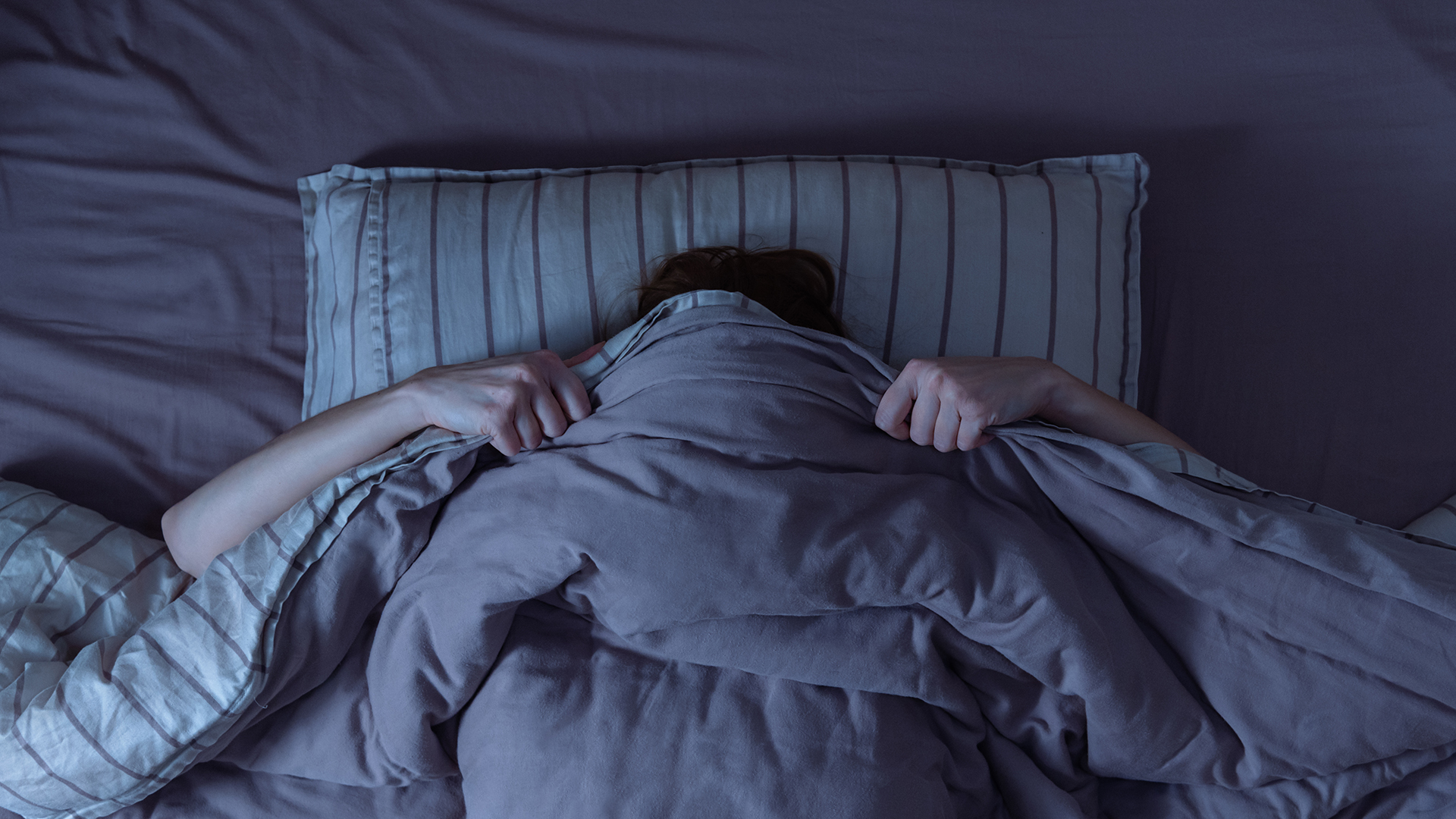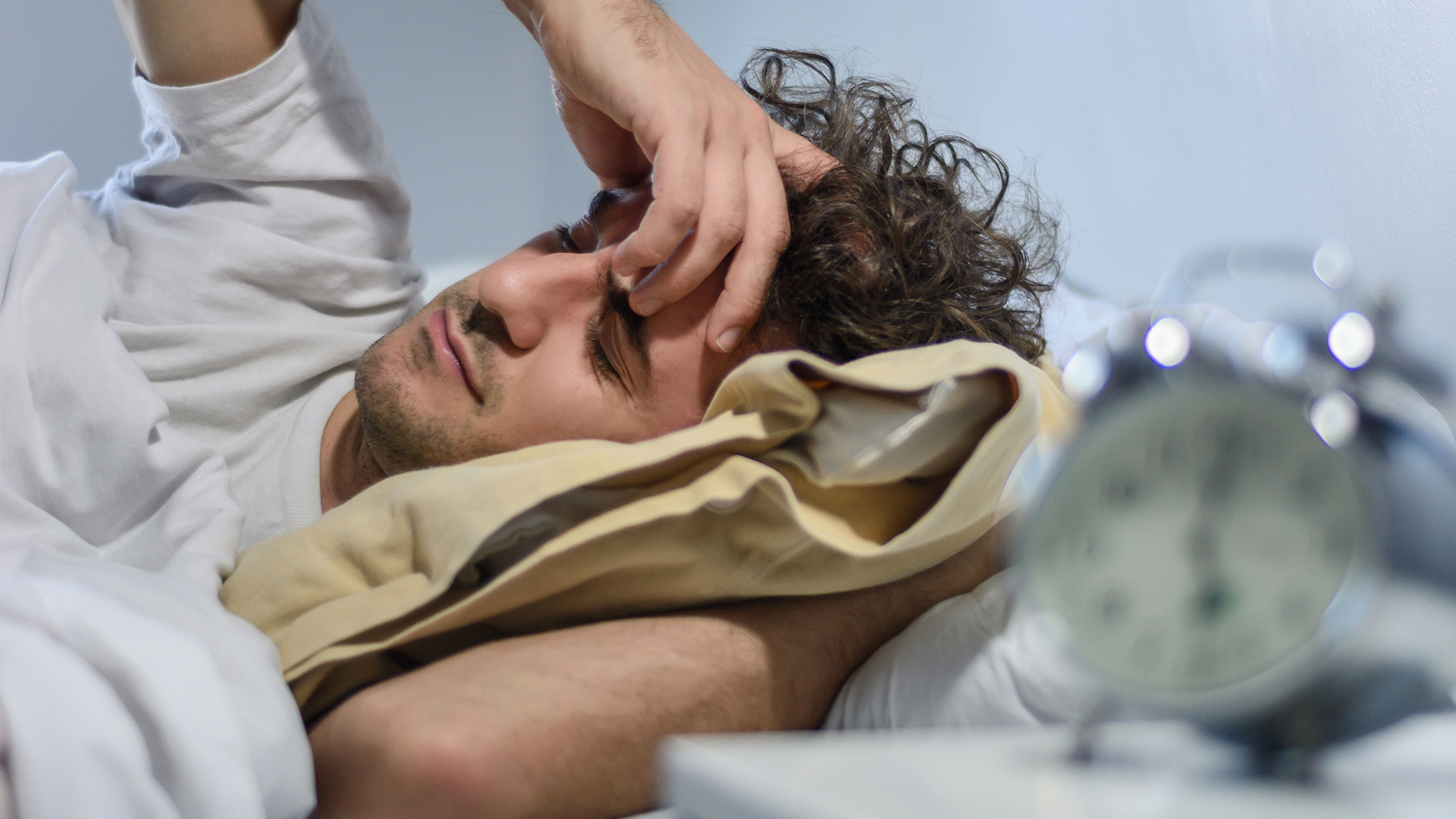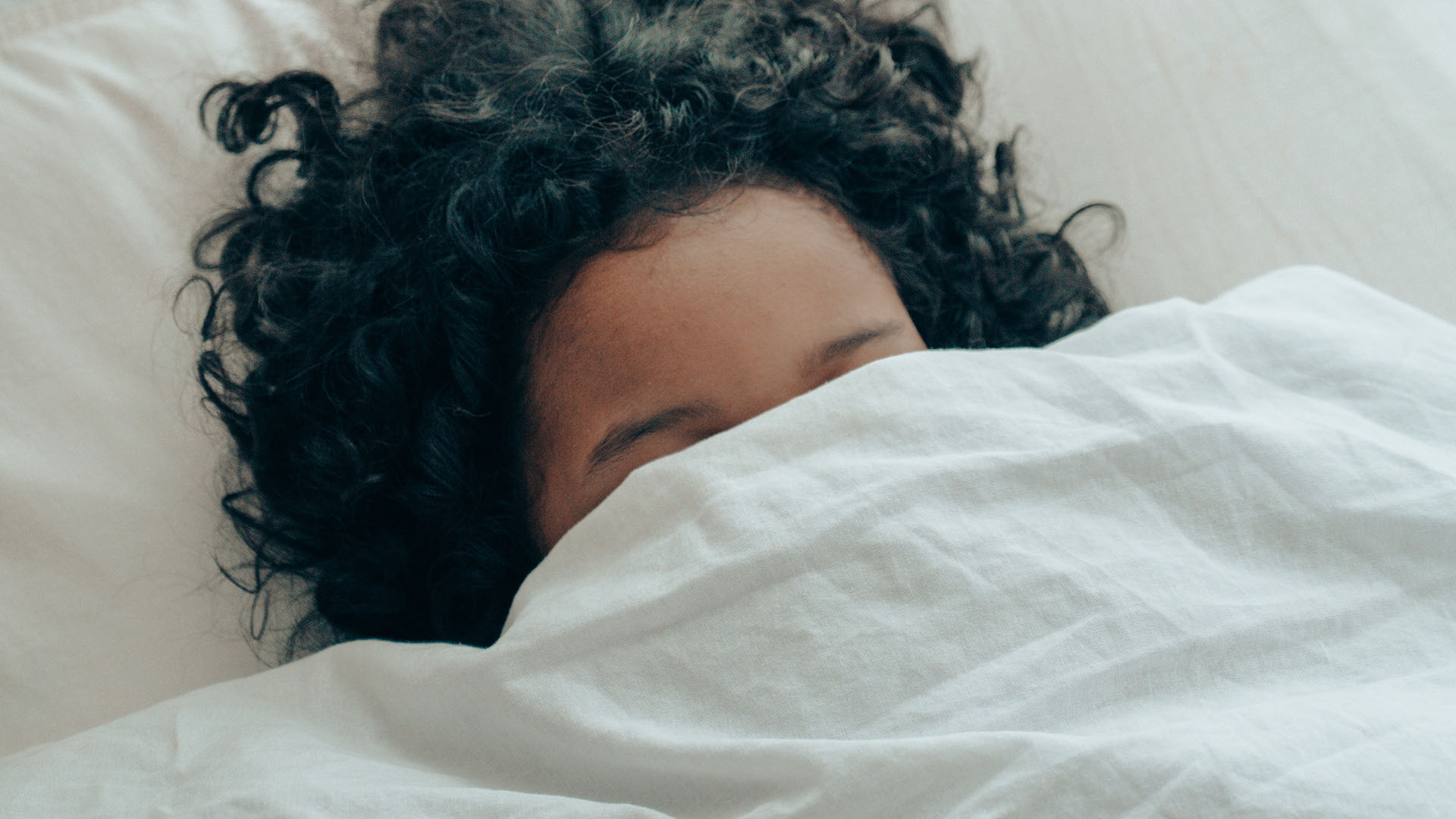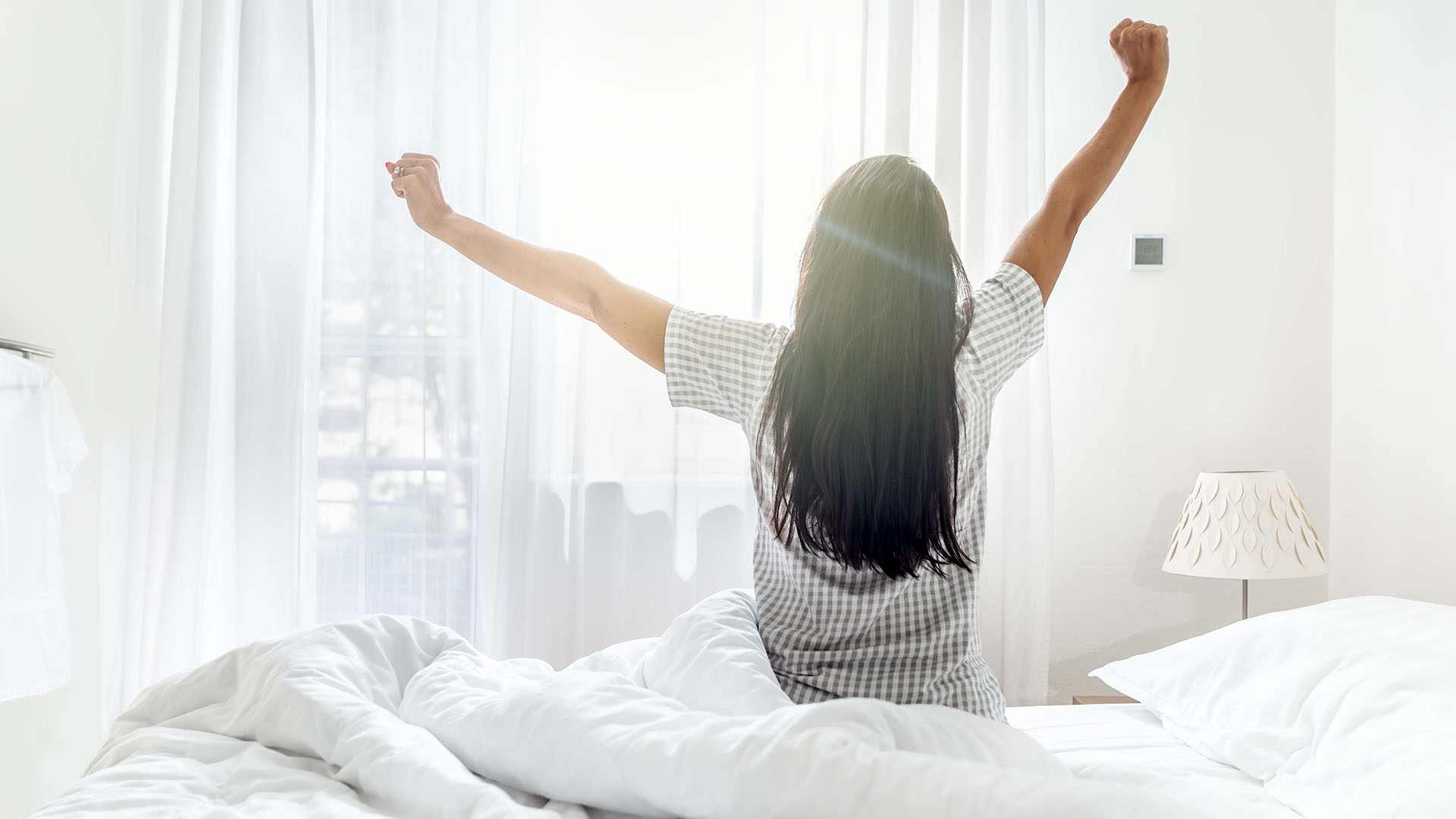Feeling sluggish? Here's why you need more sleep in winter, according to a doctor
Perhaps not hibernation for humans, but a few extra hours is what the doctor orders

Sign up for breaking news, reviews, opinion, top tech deals, and more.
You are now subscribed
Your newsletter sign-up was successful
If you’ve ever felt like spending November through to February curled up beneath the covers, it turns out you might be onto something. No, scientists aren’t recommending that we all start hibernating, even if some of our best mattresses are perfect for it. But research suggests a few extra hours of shut-eye might be the right way to spend a winter evening.
Dr Deborah Lee of Dr Fox online pharmacy teamed up with Cult Beauty to offer advice on feeling better in the winter. Dr Lee’s first recommendation? More sleep, perhaps even two and a half extra hours in bed. “This means a healthy adult might sleep between seven to 10 hours per night in the winter,” says Dr Lee. Although, as we tend to recommend seven to nine hours of sleep anyway, you should be looking at the higher end of that range. Let’s take a look at some of the reasons we might need to rest more in winter, and how you can achieve a better sleep.
Why might more sleep in winter be beneficial?
Our daytime activities have a huge impact on how well we sleep at night, but in winter, our daily doings might not be conducive to a healthy sleep / wake cycle. "We tend to exercise less outdoors when it’s cold,” says Dr Lee. “Exercise stimulates the immune system. Not exercising can make you feel sluggish, under the weather and tired.”
And it isn’t just our exercise habits that take a hit over winter. "We tend to eat less fresh fruit and vegetables in the winter,” Dr Lee explains. “We feel cold and tend to crave comfort foods which are often high-carb and high fat. The spikes and falls in blood sugar levels can make us feel fatigued.” And, unfortunately, these carb-heavy and rich comfort dishes aren't part of a healthy diet for better sleep.

While it’s important to maintain a healthy diet and exercise routine throughout the year, it’s no surprise that we’re more inclined to seek warmth and comfort during winter. But without consistent exercise, frequent daylight, and a balanced diet, our energy levels can start to drop. In turn, we need to ensure we’re getting enough hours of sleep for our body to repair and refresh itself.
4 tips for sleeping better in winter
It isn’t just about getting more sleep, it’s important that you’re getting good quality, regular sleep. Below are some tips on improving your sleep habits, even in the very bleak midwinter.
1. Adjust the temperature in your room
It’s very tempting to crank up the heat on a cold night, but a hot room might be keeping you awake. Our body temperature naturally falls by one or two degrees in the hours leading up to sleep. This temperature drop signals to the brain and body that it’s time to wind down.
Sign up for breaking news, reviews, opinion, top tech deals, and more.
"Being too hot or too cold disrupts sleep, leaving you feeling tired and unrefreshed in the morning,” explains Dr Lee. "The optimum bedroom temperature for sleep is 18.3 degrees Celsius."
As well as adjusting the thermostat, what you wear to bed can make a difference to how well your body maintains temperature. Choose pajamas made from breathable natural materials, such as cotton, instead of synthetics. Dr Lee also recommends a somewhat controversial sleep wear option: socks to bed. “This helps to draw warmth to your feet and helps lower your core temperature, which is what happens when you fall asleep.”

2. Practice good sleep hygiene
A good bedtime routine is important year-round, but it can be particularly beneficial in winter when the daylight hours don’t always signal it’s time to wake up and fall asleep. “Have a set bedtime and wake-up time and stick to it as much as possible,” Dr Lee suggests, to avoid allowing inconsistent daytime hours to dictate your routine.
Dr Lee also has some tips for maintaining good sleep hygiene in winter. "Wind down for sleep, no blue light devices within 2 hours of bedtime. Have a warm bath or shower. Dim the lights,” says Lee. Not sure where to get started? We have some tips on how to create a bedtime routine.
3. Use a sunrise alarm clock
Exposure to light can help us wake up without feeling tired, but in winter many of us are up before the sun has risen enough to wake us naturally. One way to counteract this is with the use of a sunrise alarm clock. Instead of a sudden ringing jolting you awake, these clocks slowly flood the room with light, mimicking a natural dawn. This introduction of light switches off the production of sleep-hormone melatonin, and switches on the release of energizing-hormone cortisol.

“Gradually introducing light helps your brain to slowly wake up when it’s still dark outside. Waking slowly is believed to reduce sleep inertia - that groggy feeling we often have when we first wake up,” says Dr Lee.
4. Improve your mornings
It isn’t just what you do the night before that makes a difference – preparing for good sleep starts as soon as you wake up. Research indicates that light exposure can potentially help alleviate mild cases of insomnia. On a dark morning, using a light box for 20 to 40 minutes after waking up might help you feel more alert.
It’s also important to try and get some natural light into your routine. Getting outside in the morning can help regulate your internal body clock and assist the production of vitamin D. “This exposure suppresses melatonin production, making you more alert during the day, and encourages physical activity, which can improve sleep quality by reducing stress and promoting better sleep patterns," says Dr Lee.
A short trip outside might be just what you need to shake off your (brief) winter hibernation. But if you’re struggling to sleep consistently in winter, check out the Cult Beauty sleep aids.

Having worked for many years in the NHS, initially as a GP, and then as Lead Clinician for an integrated Community Sexual Health Service, Dr Deborah Lee now works as a health and medical writer, with an emphasis on women's health. Her areas of special interest include, sleep, diet, weight loss and nutrition. Dr Lee is a medical content writer for Dr Fox (Dr Fox Online Pharmacy).
Dr Lee writes for many media outlets including Live Science, The Daily Express, The Daily Mirror, The Sun, Cosmopolitan, Net Doctor, Healthline, Patient, Open Access Government, Bella, and more.

Ruth is TechRadar’s Sleep Writer. She’s here to help you find the perfect sleep setup for your budget and personal preferences. As well as keeping a keen eye on everything that’s going on in the world of mattresses, she regularly speaks to experts to help you learn how to improve your sleep habits, whether that’s by debunking sleep myths or explaining the science behind it all. Prior to joining the TechRadar team, she wrote features and product guides for new parents hoping to get a decent night's sleep, as well as writing for a variety of online spaces.